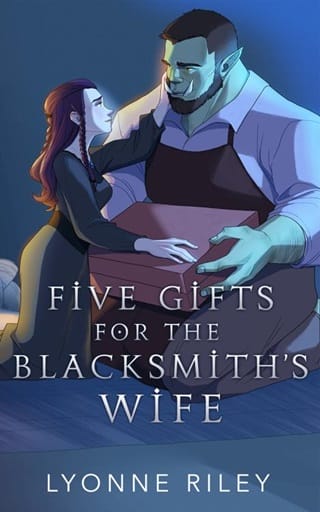3. The Forest
The stillness of the train makes Grey stumble. He feels hot and shivery, his clothes heavy on his skin, a buzzing on the edge of his hearing. When he rights himself he understands that although its wheels have stopped turning, inside the movement remains. Vines creep down from the windows, thin branches splinter the doorframes and burst into leaf. "Jasminum polyanthum," he murmurs, taking the pink, star-like flowers between his fingers. Some familiar plants, yet others he doesn't recognize—sharp-toothed snapping pods and spiky petals; ghostly white orchids and leaves that shiver open and shut with the touch of his breath. Insects whirr in the hot air, wing cases clicking in his ears, and he has to resist the urge to try to collect it all, to sink to the ground and feel the new life beneath his fingers. But there is not enough time—they may be right behind him, the Captain or the Company men, but she will not be safe with them, they will not understand her like he does. He turns, half expecting to see a flash of black suit. What do the crew call them? Crows. Yes, an apt name, though the crow is a much maligned bird—a creature cannot be good or evil, not like man, who is born good and pure, who must learn evil. Names matter. But he has seen an avidity in their eyes. What if they want her too? They will catch her in their claws, keep her all for themselves.
He forces his feet onward. How marvelous it will be, their Exhibition—together they will turn the great glass palace into a forest all its own. Not display cases and velvet-lined trays—no, the public will push through the undergrowth and at every turn there will be new discoveries, the modern world setting out its ingenuity. Yet nothing will be as astonishing as Henry Grey's new Eden—or his new Eve. He has never felt so close to the divine. To be walking here, in the foothills of a new world.
He stumbles over a root and finds himself pressed against a window, mesmerized by the proliferating flowers on the glass. He puts his eye closer and closer, and through the flowers he can see wire fences and tall towers; men standing like statues, rifles resting on their shoulders. And a shadow falling across them all, a great wall, rising before them. He frowns, puzzled as to what it means, but then he pulls himself upright and finds that the men and the wire and the wall have all vanished, and when he sees a glimpse of blue ahead, he forgets them entirely.
"Wait!" he calls out, but she is always on the edge of vanishing. The corridor narrows. There she is, beckoning, or has she just brushed past him, gone back the way they came? Has she turned herself into a light-winged moth, to slip from his grasp?
A pain like a knife twisting in his abdomen makes him stop, bend over in agony. There—growing inside him too; bursting out of the ulcer, he can feel leaves, tendrils, the agony of sharp thorns.
 Fullepub
Fullepub 



